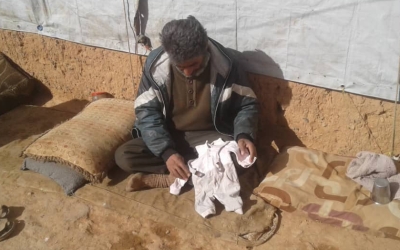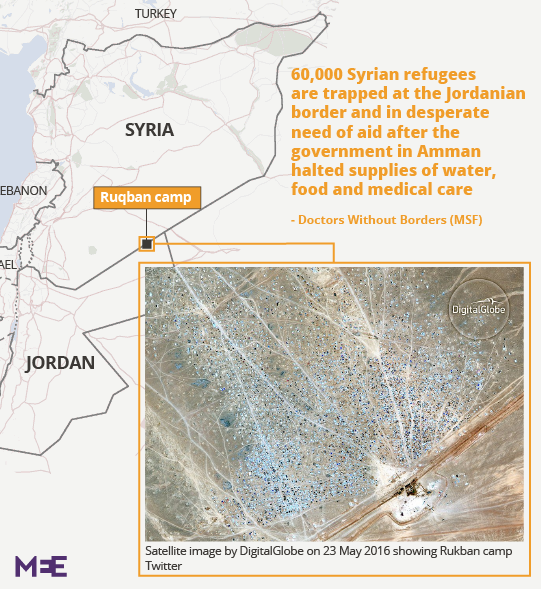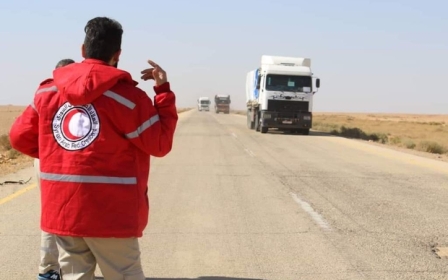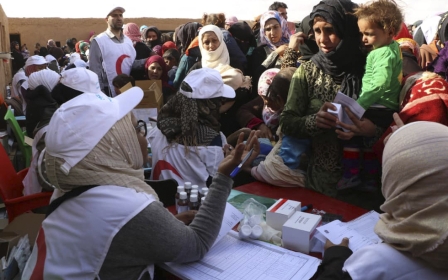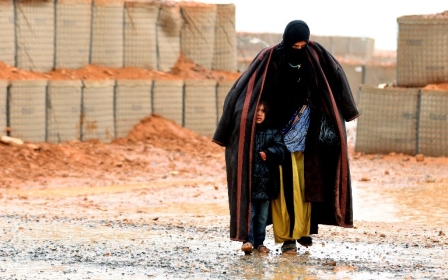Thousands of Syrians leave desert camp and head to government areas: UN
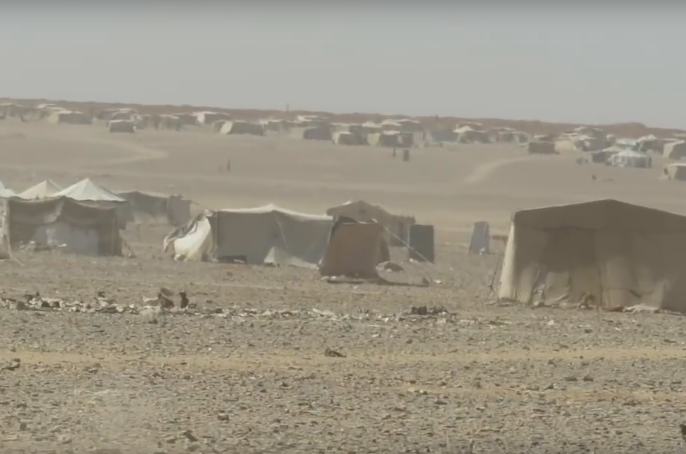
Thousands of Syrians have left a desert refugee camp near the Jordanian border since March and headed back to government-controlled areas, a United Nations spokesperson said on Friday.
The UN's humanitarian coordination office (OCHA) said that at least 7,300 Syrians had left the Rukban refugee camp, where conditions have been described as "critical" by aid organisations.
But despite thousands leaving the camp, OCHA noted that 36,000 people remained in Rukban, which lies near the al-Tanf military base used by the US-led coalition fighting the Islamic State group (IS).
Refugees who left the camp organised their own transport to the edge of the de-escalation zone near al-Tanf and transferred to collective shelters in the Syrian city of Homs and other Syrian towns where they had fled from, UN officials said.
"Since March, over 7,300 people have left Rukban," OCHA spokesman David Swanson told the AFP news agency, including 3,000 who left after 21 April.
Refugees who had left Rukban had been moved to collective shelters in the city of Homs or resettled in their areas of origin in the province of the same name, OCHA said.
The Britain-based Syrian Observatory for Human Rights activist group said those returning to government-held parts of Homs from Rukban had struck so-called "reconciliation deals" with the Damascus government.
Conditions inside Rukban are dire, with many surviving on just one simple meal a day, often bread and olive oil or yoghurt, according to one resident.
The camp has been particularly difficult to reach due to its location on the Jordanian border and the proximity of US forces and the rebels they support.
Depite the wretched conditions that the displaced live in, Syrians in Rukban told Middle East Eye they feared that returning to government-held areas would only bring new risks.
"I do not want to go back to regime areas because Syrian intelligence will force me and my young sons into military services or they'll arrest us," Mahmoud al-Fatoh, a 45-year-old teacher, told MEE.
Fatoh said living in Rukban was like living in a large prison, comparing it to the notorious Sednaya, where thousands of Syrians have been tortured and disappeared by pro-governement forces.
"However, we might leave here some day in the future, whereas if we are arrested and imprisoned only God knows if we stay alive - probably not," he said.
Kholoud Saqik, a 31-year-old mother of two, said reports of Syrians being arrested or killed by pro-government forces after leaving Rukban were rife in the camp.
"Most of my neighbours and I cannot risk leaving while these stories are spreading like fire here," she told MEE.
"Me and my family will stay until the end. We are not happy with this life, but we have no good alternative. Going back to the regime side is suicide, we cannot take it."
Washington 'appalled'
On Thursday, Washington accused the government of Syrian President Bashar al-Assad of blocking a UN request to deliver aid to the camp, saying it was "appalled" by the behaviour.
"We remain deeply concerned about the deteriorating humanitarian situation in Rukban, especially as the Holy Month of Ramadan is about to begin," the US State Department said in a statement.
"We urge the Assad regime and Russia to permit deliveries of international humanitarian assistance from Damascus and stop blocking commercial routes to the encampment immediately in order to avert further suffering."
In February, Rukban received its "largest" humanitarian convoy of 133 trucks, which included food, clothes, healthcare items, and medical supplies for the camp's 40,000 residents. This delivery was also the second in three months for the camp's impoverished residents.
Middle East Eye reported in January that families inside Rukban blamed terrible living conditions and lack of humanitarian aid for the death of eight children.
Additional reporting by Zouhir al-Shimale
Middle East Eye delivers independent and unrivalled coverage and analysis of the Middle East, North Africa and beyond. To learn more about republishing this content and the associated fees, please fill out this form. More about MEE can be found here.


